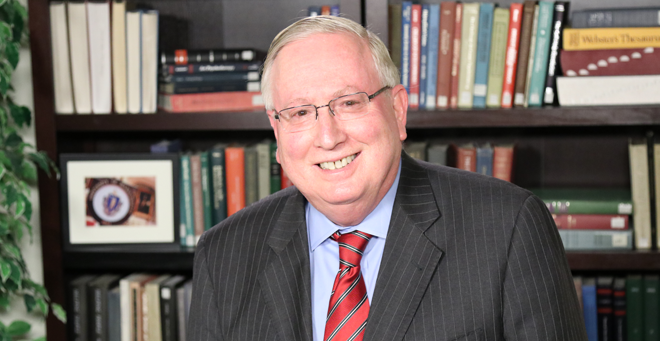
|
Anthony Rothschild, MD, the Irving S. and Betty Brudnick Chair in Psychiatry and professor of psychiatry, is among six UMass Medical School faculty who joined more than 40 Massachusetts doctors, scientists and researchers expressing concern over the potential dangers of marijuana use among the general public in a letter to Massachusetts lawmakers in early June.
“As someone who has done a lot of research on medication treatments for psychiatric disorders, I know that one has to be very careful about what one puts in their body that gets into the brain,” Dr. Rothschild said.
He urged the public to read the Statement of Concern, organized by the Massachusetts Prevention Alliance. The report suggests the state’s marijuana policy favors commercial gain over public health and regulates the drug like any other “ordinary commodity.” Authors also point to research that shows THC, the main psychoactive chemical found in marijuana, is more potent than ever before and can increase the risk of serious mental health issues.
In an interview, Rothschild explained why he discourages the use of marijuana.
What do you want the public to know about the potential dangers of using marijuana recreationally?
“My concerns are longstanding and have to do with the deleterious effects of marijuana on people who suffer from psychiatric illness, in particular psychotic disorders such as schizophrenia, but also depression and bipolar disorder. For me personally, my concern stems from a longstanding interest and respect for the brain.”
Can you explain the key negative effects of THC, a main ingredient in marijuana, and what it can do to the body and brain?
“There are medications that have positive effects like antidepressants, but there are drugs that can have negative effects. One of those is THC, which is the compound within marijuana that gets into the brain that can cause deleterious effects. THC is a psychoactive chemical. People smoke marijuana for the psychoactive effects of ‘getting high.’ So, there’s no question it gets in the brain. There are negative effects of putting a psychoactive chemical in the brain. That includes addiction and impairment of intellectual and cognitive functioning. We know from studies that it increases the risk of serious mental health problems, including acute psychosis, like hallucinations and delusions, as well as paranoid schizophrenia, depression and anxiety. You have a two to five times greater risk of having a first episode of psychosis if you use marijuana than if you don’t.”
The Statement of Concern calls on lawmakers to take marijuana risks seriously. Why do believe the commercialization of marijuana will lead to a public health crisis?
“Like tobacco, not everyone who smokes cigarettes gets lung cancer, but if you do smoke cigarettes, it increases your risk of getting lung cancer. And it’s the same with marijuana; not everyone who smokes marijuana is going to develop psychotic symptoms or depression, but it increases the risk of that happening. What we are saying in the statement is that the public needs to be aware. People can make choices, but we don’t feel like the packaging of the marijuana adequately displays the negative side effects. Same thing if you go back into the history of tobacco. There were no warnings on the packaging.”
“I’ve been bothered, and all the people who signed onto this statement have been bothered, by the fact that marijuana in Massachusetts is being rolled out as a big business for consumers to partake of, and it’s very concerning to see that. As we talk about in the statement, the roll out of tobacco and the roll out of vaping were not handled properly and we ended having a lot of bad effects on public health and we’re concerned the same thing is happening with marijuana.”
According to the report, big tobacco is connected to the rollout of commercialized marijuana. Can you explain that link?
“Altria, which is the parent company of the tobacco giant Philip Morris, made a multi-billion-dollar investment in JUUL, a brand name of an e-cigarette, and also in the marijuana company Cronos, which highlights the concerns that there could be marijuana products in JUUL-like vaporizers, according to the report.”
Read the full Statement of Concern here.
In addition to Rothschild, faculty from UMass Medical School who signed the Statement of Concern include Xiaoduo Fan, MD, MPH, associate professor of psychiatry; Jeffrey Hopkins, MD, FACEP, assistant professor of emergency medicine; Jeffrey C. Lukas, MD, assistant professor of pediatrics; Mark Vining, MD, associate professor of pediatrics; and Margret Chang, MD, assistant professor of medicine.